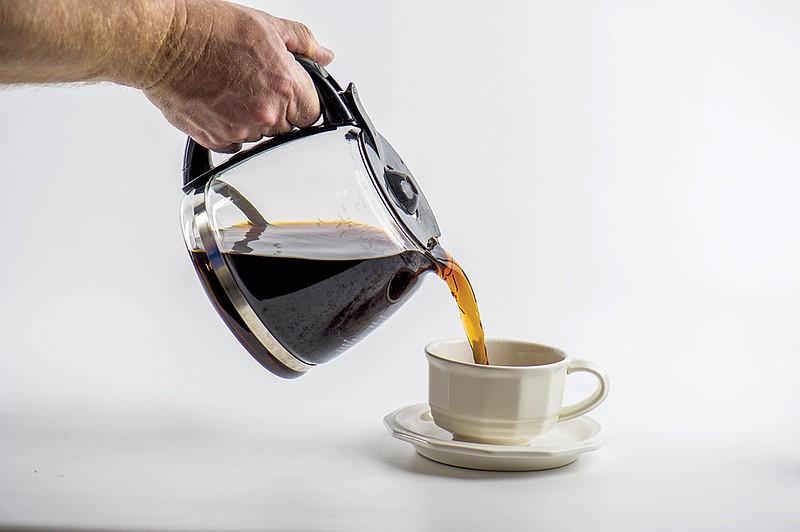NEW ORLEANS-The desire to serve a good cup of coffee was the seed that sprouted Community Coffee Co. 100 years ago, and it is what keeps the Saurage family's hand firmly on the plow.
In the early 1900s, Henry Norman "Cap" Saurage began journeying to New Orleans to buy fresh coffee beans to grind and percolate at his Full Weight Grocery in a little community north of Baton Rouge. In 1919, he began buying beans and roasting and bagging them at his house for a new company he named Community Coffee.
Saurage delivered that coffee to other retailers in a horse-drawn wagon until the wholesale business outgrew the grocery.
"The internet was a game-changer for so many brands like ours."
A century later, Community is the largest family-owned coffee retailer in the continental United States, said Matt Saurage, the fourth member of his family to lead the company.
"My official career began in 1995 as a manufacturing engineer in a roasting facility," he said.
Like other family members then and now, he worked in the business much of his life, starting with emptying trash cans and loading trucks, moving through the departments until being named president and CEO in 2005, and finally taking over the chairmanship.
With so much consolidation in American companies, Saurage said, he is proud Community has remained a family operation.
"We're becoming kind of a rare breed," he said. "We now have the fifth generation who are becoming young adults. We want to engage that fifth generation of Saurages as well. We want to always be family-owned."
Community Coffee, once only available in Louisiana and parts of Mississippi, now sells to grocery stores, restaurants and businesses in 22 states.
In the 1970s, it employed fewer than 150 people. That grew to 300 by the mid-'90s and to about 800 today.
It added CC's Coffee House outlets in 1995, spinning those shops into a separate company in 2013. It employs about 400 full- and part-time workers.
"Our e-commerce serves the entire country," said David Belanger, who has been president and CEO of Community Coffee for 20 years.
"The internet was a game-changer for so many brands like ours," Saurage agreed. "People come to Louisiana and have a great coffee experience, a great culinary experience all the way around, they go home and they want to bring that back with them."
Keeping up with technology in production, packaging and sales while staying on trend with consumers has been the foundation of Community's longevity, Belanger said.
In 1980, Community was the first U.S. company to successfully market vacuum-packed ground, roasted coffee. It was among the first to tout a "best if brewed by" date on its packages after enhancing its storage process to keep whole beans fresher longer, Belanger said.
Today, Community is putting more emphasis on sustainable coffee trade, including environmentally friendly farming, processing and packaging, Saurage said.
In 1995, Henry Hastack, then a coffee trader with Westfeldt Brothers in New Orleans, told The Times-Picayune that Community was well-positioned to feed the public's growing desire for a great cup of coffee.
"It's more than a fad," Hastack said then. "It's a trend, and I think it's here to stay."
"Henry was exactly right," Saurage said. "Back then, people were forever trying to find a good cup of coffee.
"Now, you're just avoiding the bad cups," he said. "There's so many good coffees out there. So many independent roasters and coffee houses in New Orleans, across the South and in the country."
"I see coffee continuing to be more ingrained in our American culture and consumed more frequently by more people," Saurage said, noting that the coffee business has a $125 million impact on the U.S. economy.
Coffee's popularity peaked in 1960s, dropping off as carbonated soft drinks became popular. Now, as soft drinks' popularity has waned in recent years, coffee has seen a resurgence, he said.
The growing popularity of micro-roasters and craft coffees raises the tide for all coffee makers, he said.
Community has long embraced businesses practices that many craft roasters tout today: That is, controlling every possible aspect of its product from farm to cup, he said.
As then-chairman Norman Saurage III noted in that same 1995 article in The Times-Picayune: "Heck, we were specialty before specialty coffees were cool."
Saurage ran the company for 60 years, recording his pride in its origin story with his book "The Community Coffee Story, 1919-2009." He stepped down in 2012, handing the chairmanship over to his youngest son, Matt.
Community still imports 100 percent Arabica green coffee beans directly from farmers, mostly in Central and South America. The beans come through the port of New Orleans and are roasted at either the Harahan plant, which was purchased about a year ago, or the plant in Port Allen, Matt Saurage said.
Long-time employees and family involvement help to maintain the standards, he said
"My mother, Donna, and my brother (Hank) and I meet every week at the roasting facility in Port Allen to taste the coffees that we are buying," he said. "Every Thursday, we sit around the cupping table to grade and discuss choice blends in that last stage of quality assurance."
For new products or specialty flavors, the company sometimes asks employees to weigh in, he said. They taste various products against one another and the results are entered in a basketball-style bracket chart that is posted on a wall until the winning blend is revealed.
That attention to taste is why the company's new ready-to-drink mocha and vanilla lattes, for example, are "coffee forward" with the first flavor hitting the palate being coffee, not cream or sugar, Belanger said.
The lattes were introduced last month in Louisiana and now are being rolled out in Mississippi and Texas.
The company is marking its centennial events throughout the calendar year, Belanger said. On social media, the company is using the hashtag #100Years100Reasons to share videos, news and archived photos.

